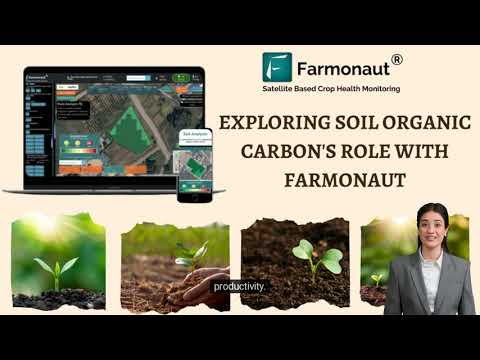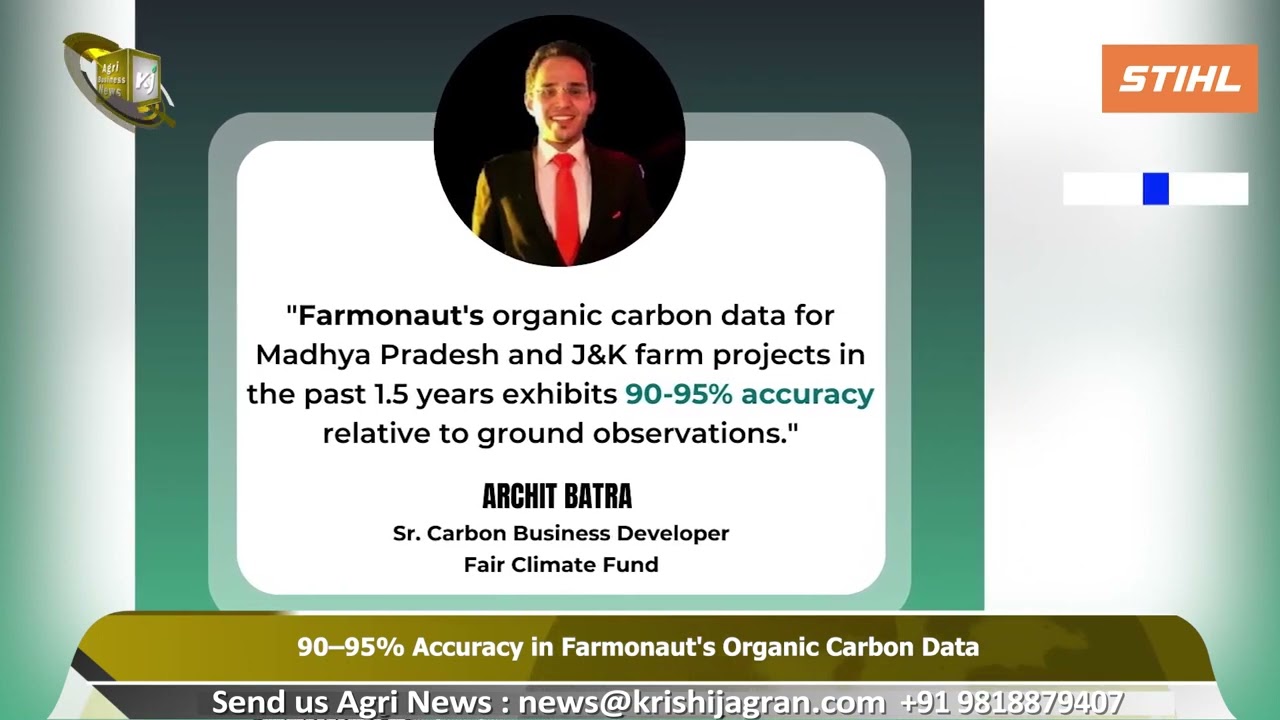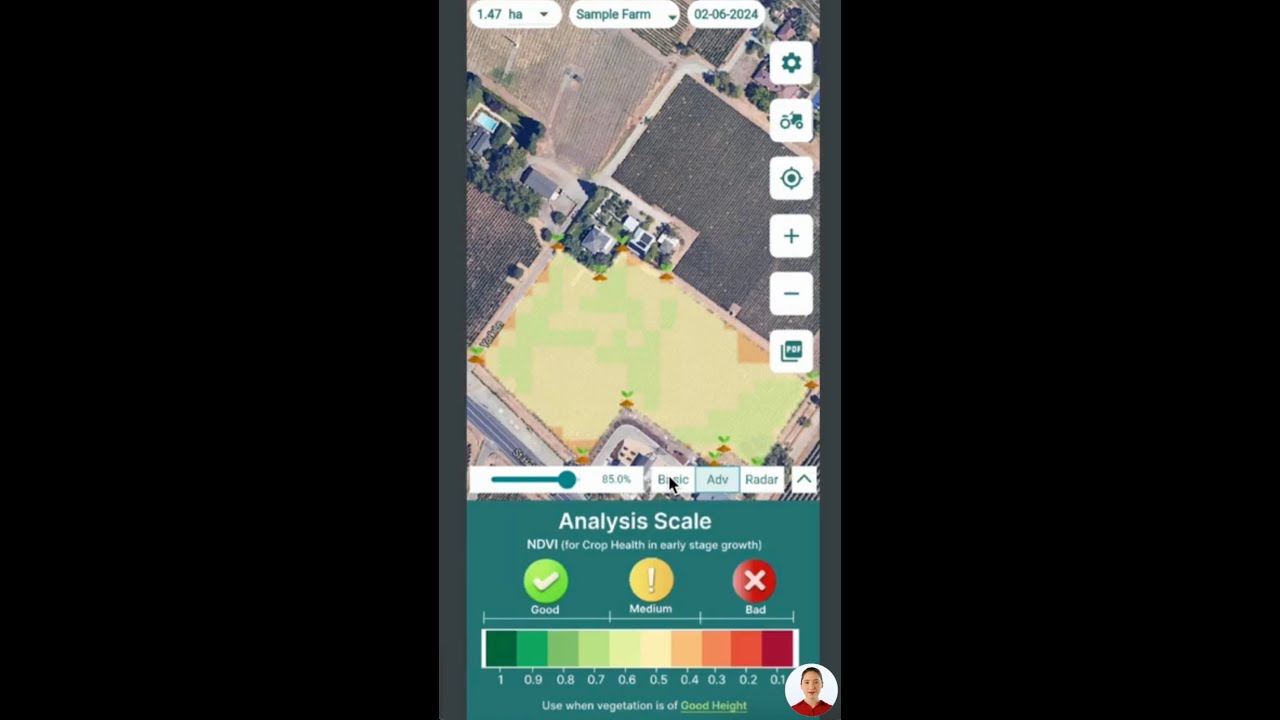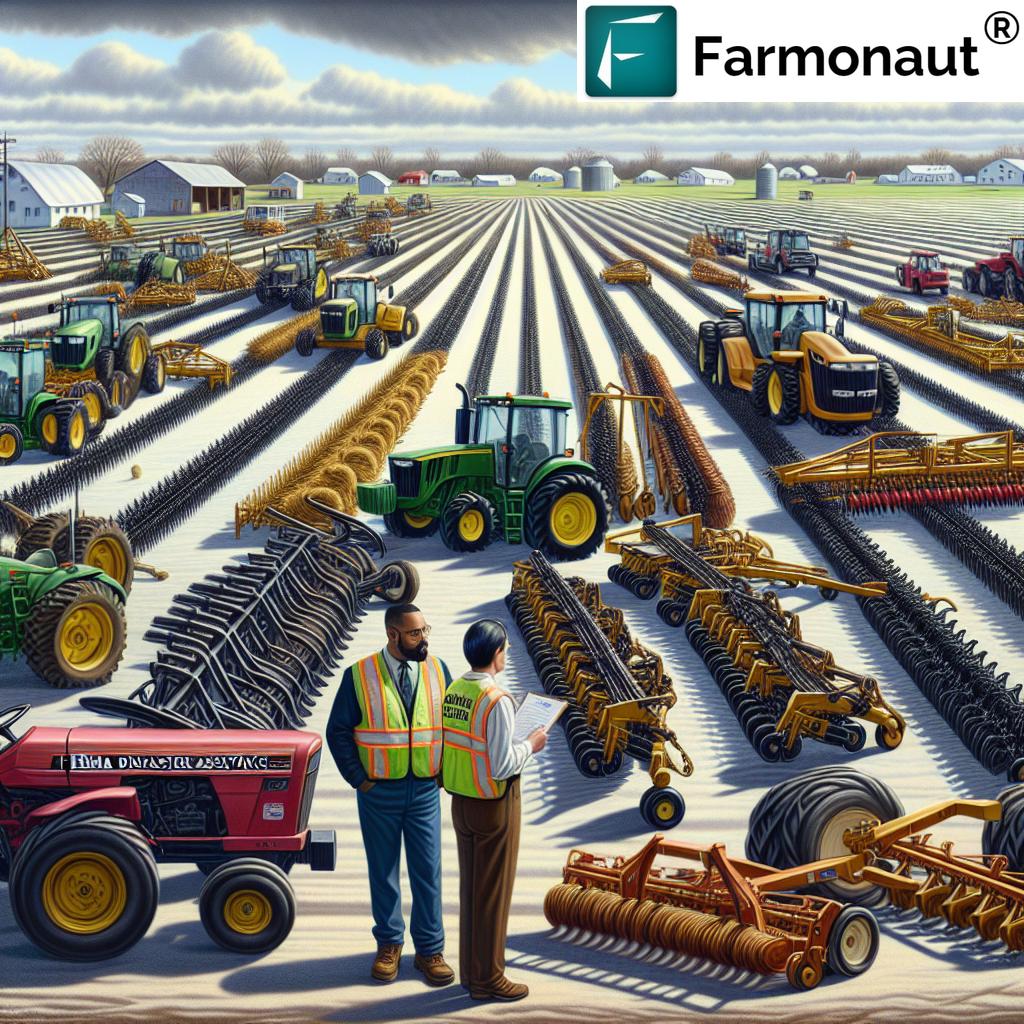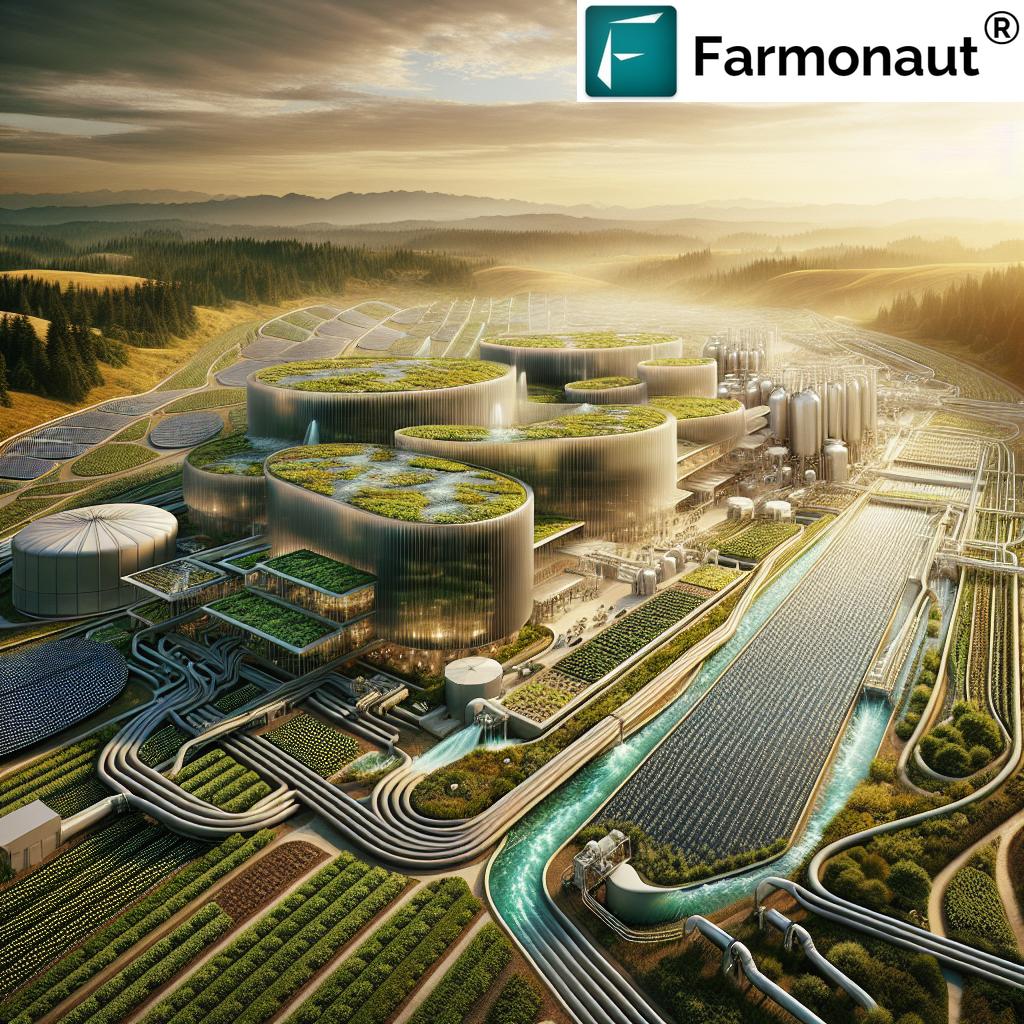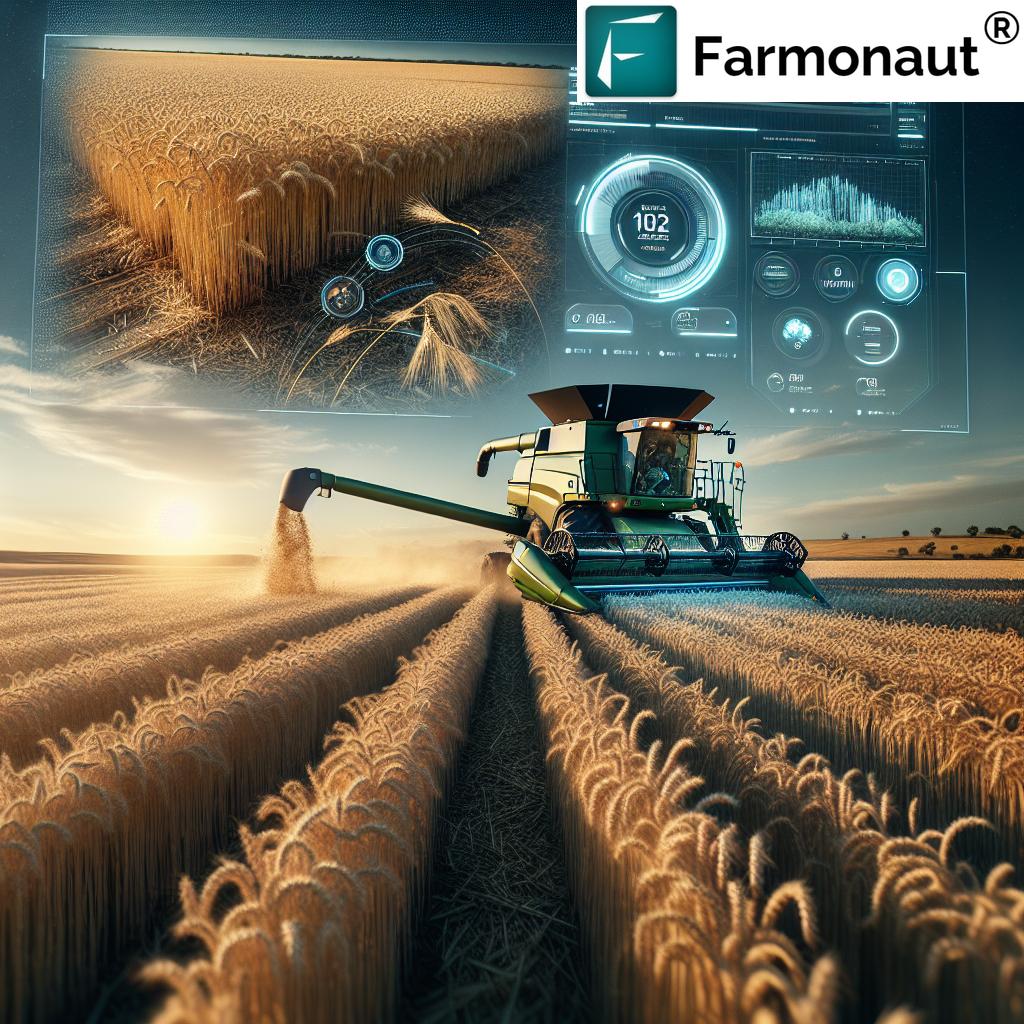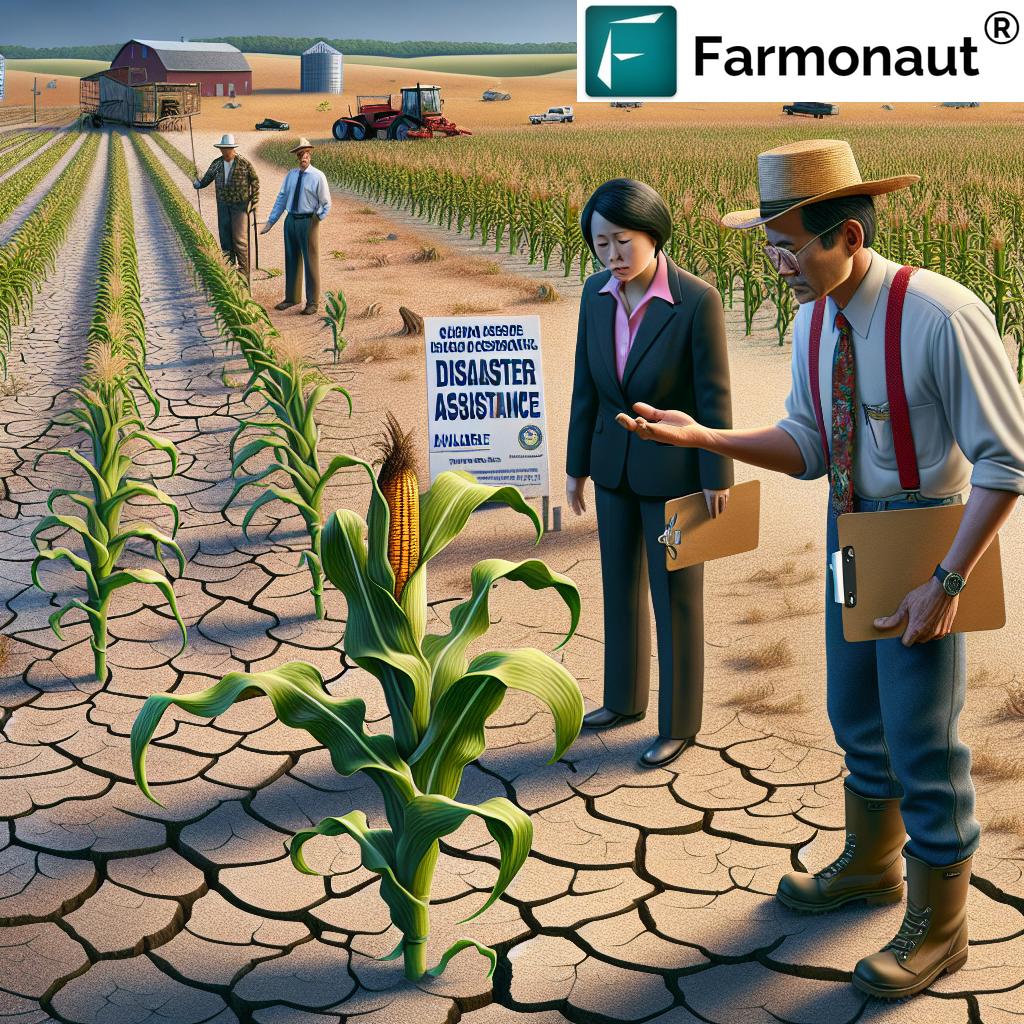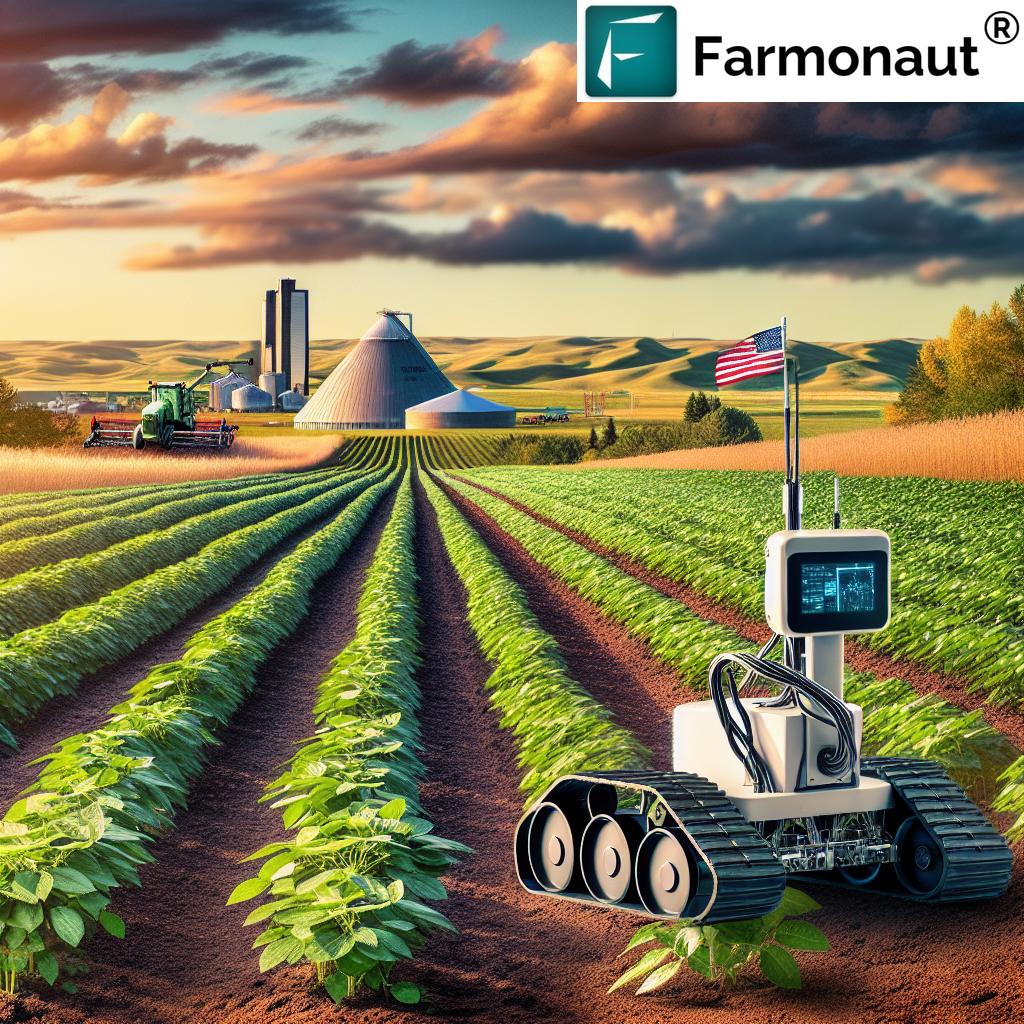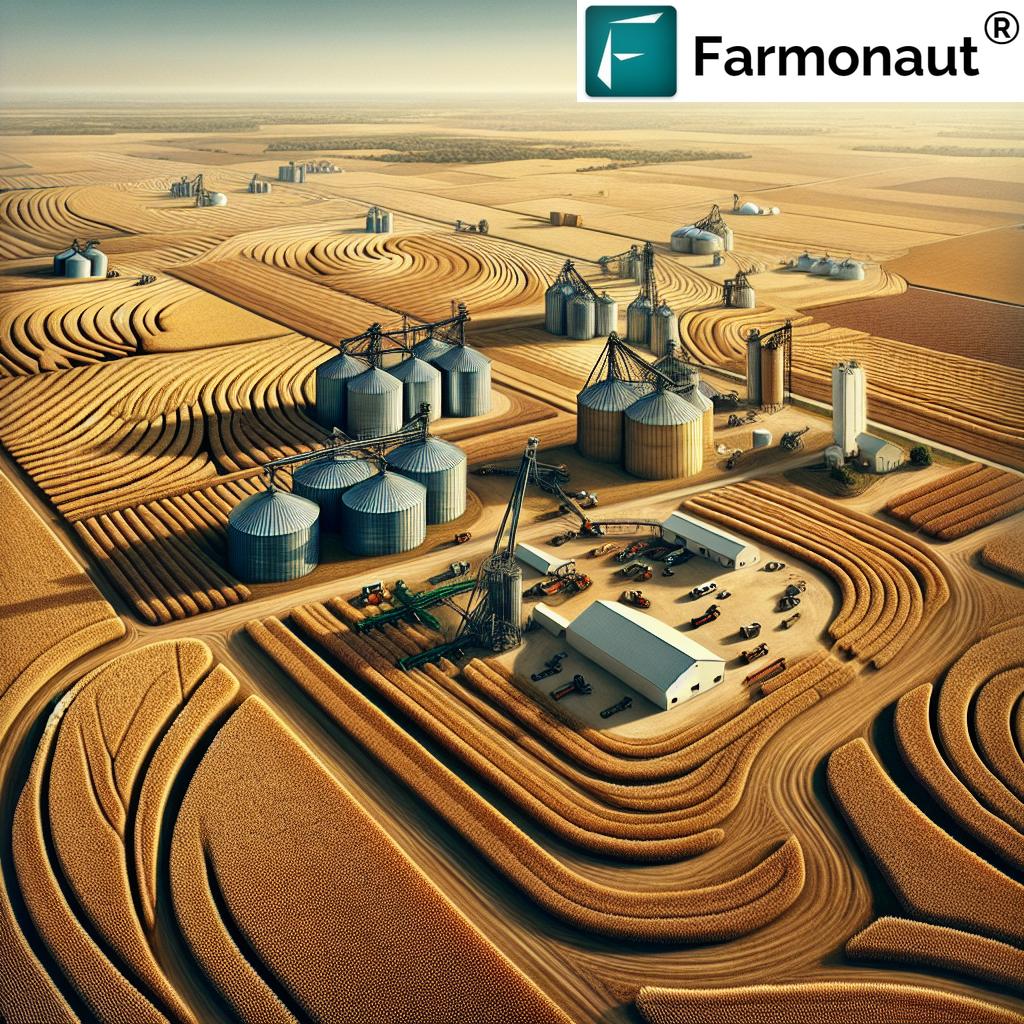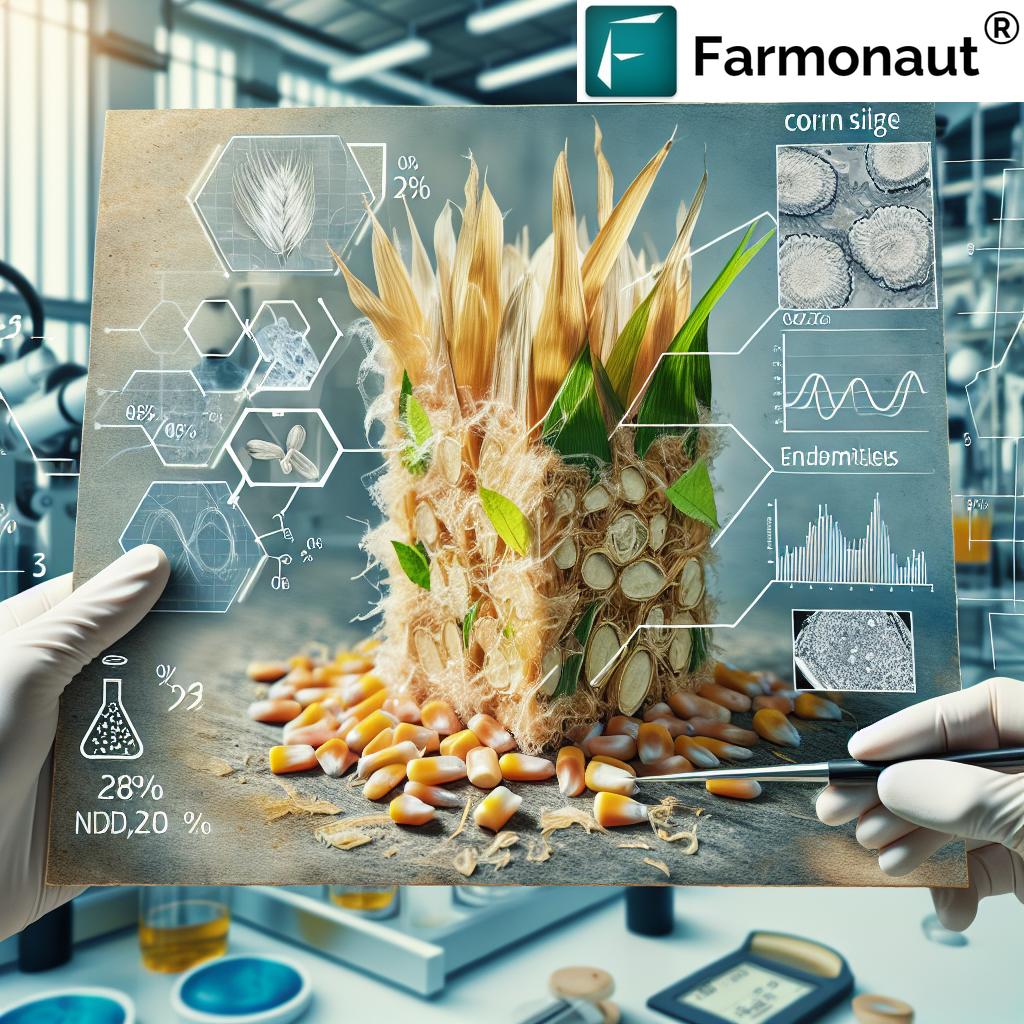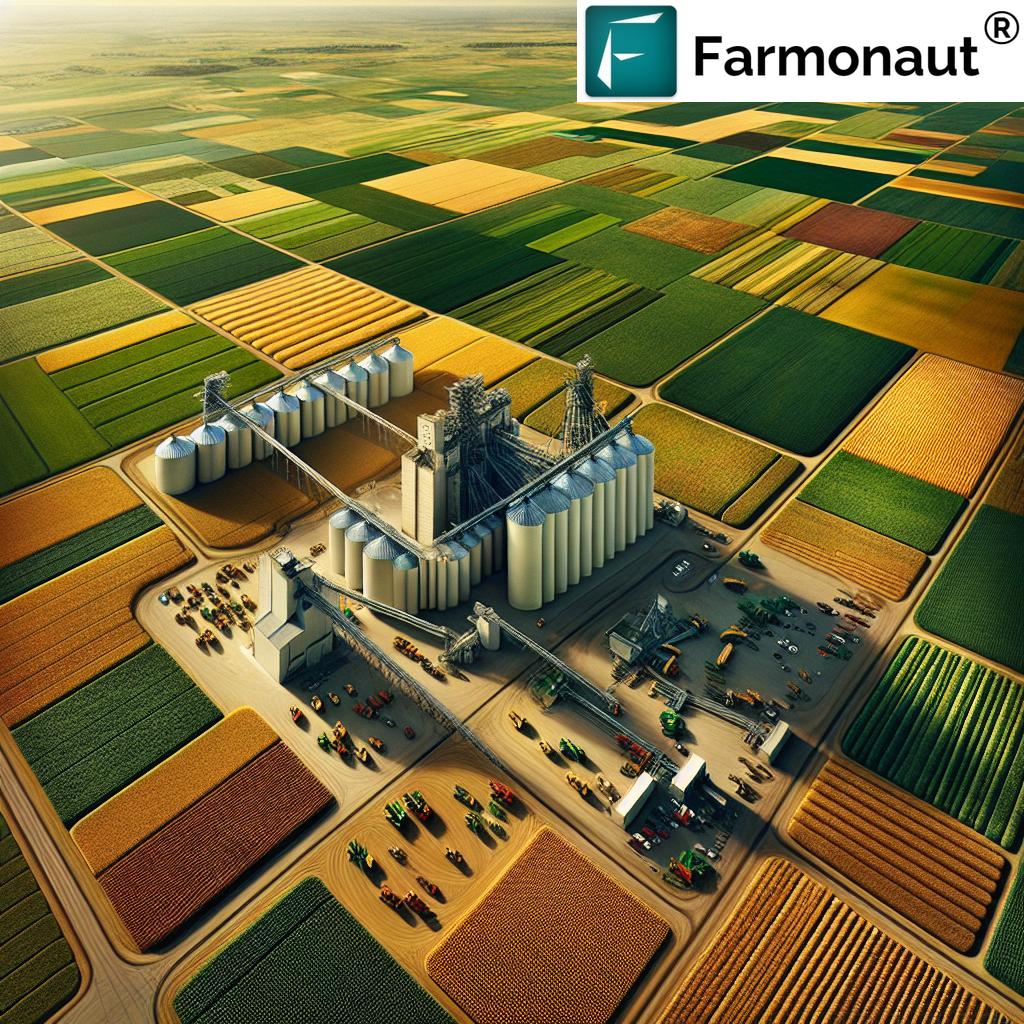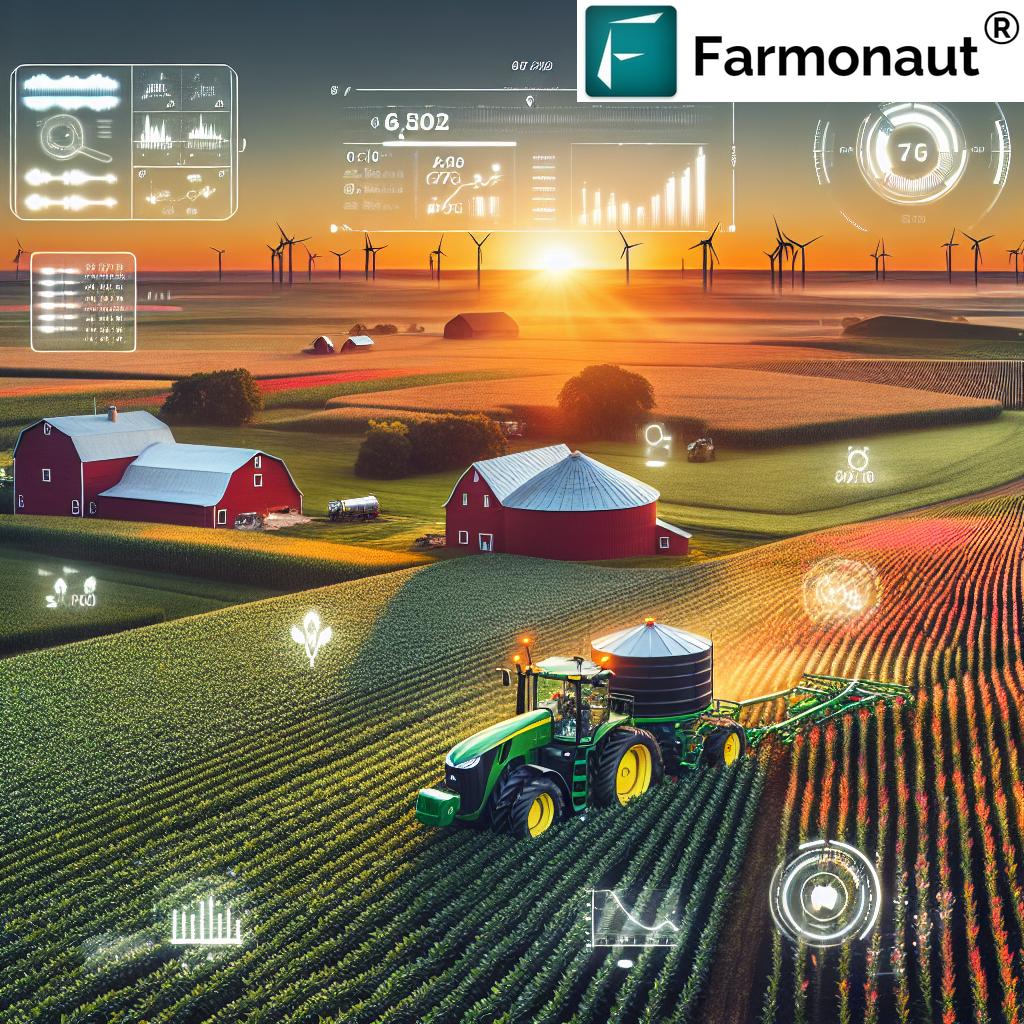Sustainable Success: How Iowa’s Organic Farms Are Revolutionizing Large-Scale Agriculture and Boosting Water Quality
In the heart of America’s Midwest, a quiet revolution is taking place. Iowa’s organic farms are leading the charge in transforming large-scale agriculture, challenging long-held beliefs about chemical-dependent farming practices. As we delve into this fascinating shift, we’ll explore how these innovative farmers are not only producing bountiful harvests but also significantly improving water quality across the state.

“Iowa’s organic farms have achieved comparable yields to conventional farms while reducing synthetic chemical use by up to 100%.”
The Rise of Organic Farming in Iowa
Iowa, long known as the heartland of conventional agriculture, is witnessing a significant shift towards organic farming practices. This transition is not just a small-scale phenomenon; it’s a large-scale movement that’s reshaping the agricultural landscape of the entire state. Let’s explore how this change is unfolding and the impact it’s having on Iowa’s farms and communities.
Clear Creek Acres: A Pioneering Example
At the forefront of this organic revolution stands Clear Creek Acres, an impressive organic farm in West Bend, Iowa. Operated by the Fehr family since 1998, this farm has grown to encompass nearly 50,000 acres of crops, including corn, soybeans, and oats. What sets Clear Creek apart is its commitment to cultivation without synthetic chemicals, relying instead on natural fertilizers and innovative farming techniques.
The success of Clear Creek Acres is nothing short of remarkable. Today, the farm generates close to $40 million annually from its organic grain sales, making it one of the largest organic farming operations not just in Iowa, but potentially in the entire United States. This success story serves as a powerful testament to the viability and profitability of large-scale organic farming.
Challenging Industry Norms
The approach taken by Clear Creek and other organic farms in Iowa directly contradicts the prevailing belief held by agrochemical giants like Bayer and Syngenta. These companies have long asserted that chemical inputs are necessary to sustain food production for a growing global population. However, farmers like Dan Fehr, with years of experience under their belts, insist that this view is debatable and that organic farming can indeed meet global food demands.
What’s particularly noteworthy is that Clear Creek’s yields closely match those of traditional farms. They experience only about a 10% decline in yield compared to conventional methods, while significantly reducing operational costs by eliminating the need for expensive pesticides and genetically modified seeds.
The Economic Benefits of Organic Farming
The financial advantages of organic farming are becoming increasingly apparent. Organic crops command premium prices in the market, with organic corn fetching up to $8 a bushel and organic soybeans reaching $22 – nearly double the prices of their conventionally grown counterparts. This price premium is a key factor driving the growth of organic farming in Iowa and beyond.
“Organic grain producers in Iowa can earn premium prices up to 50% higher for crops like corn and soybeans.”
As consumer demand for organic produce continues to rise, farmers like the Fehr family see this as a key driving force behind their operations. The growing market for organic products not only supports their current business model but also provides confidence for future expansion and investment in organic farming practices.
Innovative Techniques in Organic Farming
One of the most fascinating aspects of Iowa’s organic farming revolution is the innovative techniques being employed to manage crops without synthetic chemicals. These methods not only maintain high yields but also contribute to improved soil health and water quality.
Natural Fertilization Methods
Instead of relying on synthetic fertilizers, organic farms like Clear Creek Acres use natural alternatives such as:
- Chicken Litter: A nutrient-rich byproduct of poultry farming, chicken litter provides essential nutrients to the soil.
- Hog Manure: Another excellent source of organic matter and nutrients, hog manure helps improve soil structure and fertility.
- Crop Rotation: By alternating crops, farmers naturally replenish soil nutrients and break pest cycles.
Advanced Weed Management
One of the most significant challenges in organic farming is weed control. Iowa’s organic farmers are tackling this issue with innovative solutions:
- Laser Weeders: These cutting-edge tools use precision technology to target and eliminate weeds without harming crops.
- Cover Crops: Planting cover crops between main crop seasons helps suppress weed growth and improves soil health.
- Mechanical Cultivation: Advanced tilling techniques help manage weeds without the use of herbicides.
These methods not only eliminate the need for chemical herbicides but also contribute to overall soil health and biodiversity on the farm.
Pest Management Without Synthetic Pesticides
Organic farms in Iowa are proving that effective pest management is possible without resorting to synthetic insecticides. Some of the techniques employed include:
- Biological Control: Introducing natural predators to control pest populations.
- Trap Crops: Planting species that attract pests away from the main crop.
- Pheromone Traps: Using insect pheromones to disrupt mating cycles and reduce pest populations.
These methods not only protect crops but also maintain a balanced ecosystem on the farm, supporting beneficial insects and wildlife.
Water Quality Improvements Through Organic Farming
One of the most significant benefits of the shift to organic farming in Iowa is the positive impact on water quality. Traditional farming methods, heavily reliant on synthetic fertilizers and pesticides, have long been associated with water pollution issues. Organic farming practices, however, are showing promising results in mitigating these problems.
Reduction in Chemical Runoff
By eliminating the use of synthetic chemicals, organic farms like Clear Creek Acres prevent toxic runoff into local waterways. This is in stark contrast to conventional farming, which often contributes significantly to water pollution. Studies have shown that organic farming can substantially reduce nitrogen runoff, a critical factor in areas suffering from farm-related water contamination issues.
Improved Soil Structure and Water Retention
Organic farming practices contribute to better soil structure, which in turn improves water retention and reduces erosion. This means:
- Less soil runoff into waterways
- Improved water infiltration, reducing flood risks
- Better drought resistance in crops
These improvements in soil health not only benefit the farm but also have a positive impact on the surrounding ecosystem and water resources.
Long-term Benefits for Iowa’s Watersheds
As more farms in Iowa transition to organic practices, the cumulative effect on the state’s water quality could be substantial. Reduced chemical inputs mean cleaner groundwater, healthier rivers and streams, and potentially a reduction in the hypoxic zone in the Gulf of Mexico, which is largely attributed to agricultural runoff from the Midwest.
To support farmers in implementing these sustainable practices and optimizing crop yields, technologies like those offered by Farmonaut can be invaluable. Farmonaut’s satellite-based crop health monitoring and AI-driven advisory systems can help organic farmers make informed decisions about resource management, further enhancing the environmental benefits of their practices.
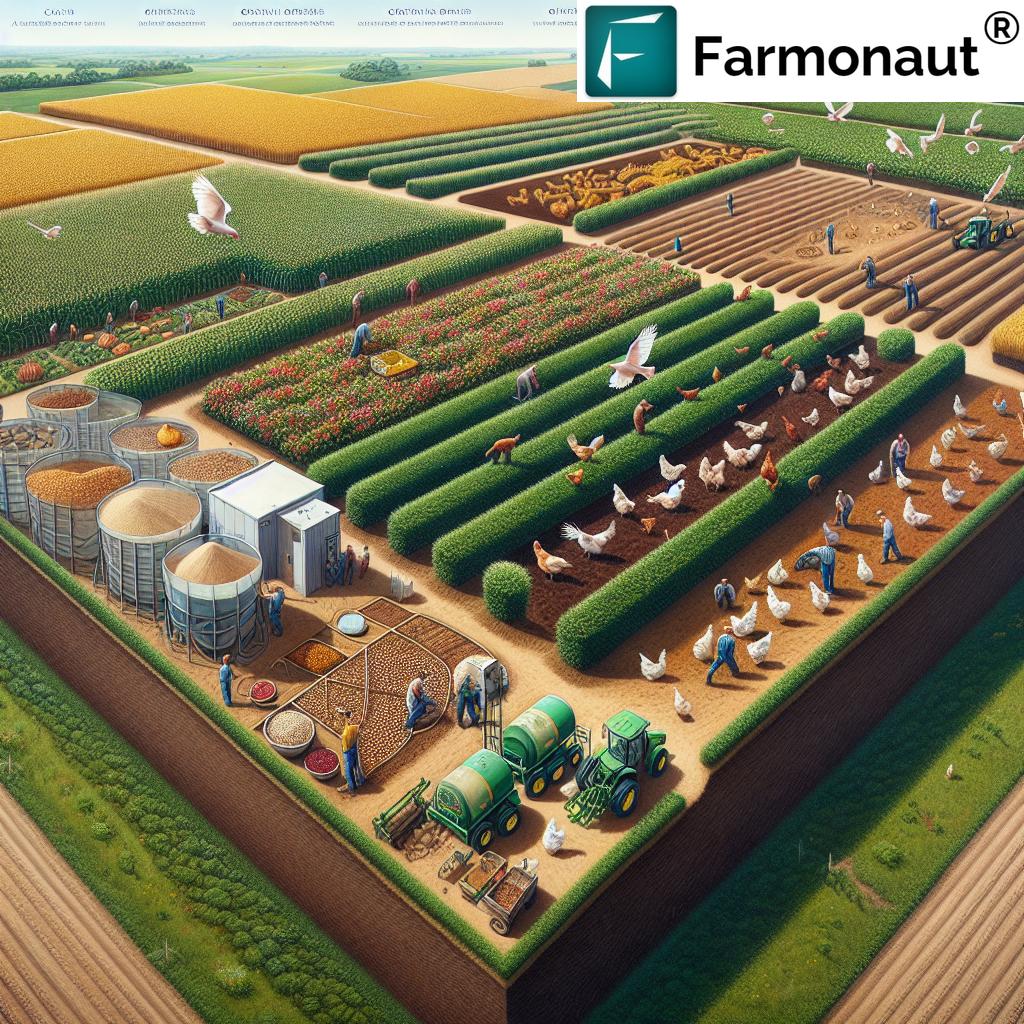
Challenges and Opportunities in Transitioning to Organic Farming
While the benefits of organic farming are clear, the transition from conventional to organic methods is not without its challenges. However, these challenges also present opportunities for innovation and growth in Iowa’s agricultural sector.
Addressing Soil Health and Erosion Concerns
One of the main criticisms of organic farming, particularly in its early stages, is the potential for increased soil erosion. This is primarily due to the need for more frequent tillage to control weeds in the absence of herbicides. However, innovative farmers are addressing this issue through:
- Advanced no-till and minimal-till techniques adapted for organic systems
- Use of cover crops to protect soil during vulnerable periods
- Implementation of contour farming and terracing to reduce erosion on sloped land
These methods not only combat erosion but also contribute to long-term soil health improvement, a key factor in sustainable agriculture.
Overcoming the Transition Period
The transition from conventional to organic farming can be challenging, typically requiring a three-year period during which farmers must use organic practices but cannot yet sell their crops as certified organic. This period can be financially stressful for farmers. However, strategies to overcome this include:
- Gradual transition of portions of the farm to spread out the financial impact
- Seeking out transitional certification programs that offer price premiums for crops grown during the transition period
- Diversifying crops to include high-value specialty items during the transition
Support from agricultural extension services and organizations like Farmonaut can be crucial during this period, providing farmers with data-driven insights to optimize their new organic practices.
Building Local and Regional Markets
As more farms in Iowa transition to organic production, there’s a growing opportunity to develop robust local and regional markets for organic products. This includes:
- Establishing direct-to-consumer sales channels
- Developing partnerships with local food processors and retailers
- Creating cooperative marketing initiatives among organic farmers
These market development efforts not only support individual farmers but also contribute to the overall growth and sustainability of Iowa’s organic farming sector.
The Growing Demand for Organic Food and Its Impact on Farmland Cultivation
The shift towards organic farming in Iowa is not happening in isolation; it’s part of a broader trend driven by increasing consumer demand for organic products. This growing market is reshaping farmland cultivation across the state and beyond.
Expanding Organic Acreage in Iowa
The numbers tell a compelling story of growth in Iowa’s organic sector:
- Between 2011 and 2021, the number of organic farms in Iowa increased from 467 to 799.
- Iowa now ranks sixth nationally in organic farmland.
- The state produces a significant portion of the U.S. organic grain market.
This expansion reflects not just local demand but also the growing national and international markets for organic products.
Meeting the Demand-Supply Gap
Despite the growth in organic production, there’s still a significant shortage of organic grain in the market. This shortage has led to:
- A dramatic rise in organic imports to meet domestic demand
- Higher price premiums for organic crops, incentivizing more farmers to transition
- Increased investment in organic farming infrastructure and research
The gap between supply and demand presents a substantial opportunity for Iowa farmers considering the switch to organic methods.
Influence on Land Use and Farm Planning
The growing organic sector is influencing how farmland is used and how farms are planned:
- More diverse crop rotations to maintain soil health and manage pests naturally
- Increased integration of livestock into crop farming systems for natural fertilization
- Greater emphasis on long-term soil health in farm management decisions
These changes are not just altering individual farms but are beginning to shape the overall agricultural landscape of Iowa.
For farmers navigating this changing landscape, tools like Farmonaut’s mobile app can provide valuable insights into crop health and field conditions, helping to optimize organic farming practices and yields.
Economic Impact of Organic Farming in Iowa
The growth of organic farming in Iowa is not just an environmental success story; it’s also having a significant economic impact on the state and its farmers.
Premium Prices and Improved Profitability
One of the most immediate economic benefits of organic farming is the premium prices that organic crops command in the market:
- Organic corn can fetch up to $8 a bushel, compared to around $4 for conventional corn.
- Organic soybeans can sell for $22 a bushel, nearly double the price of conventional soybeans.
- These price premiums can offset the potentially lower yields and higher labor costs associated with organic farming.
For many farmers, this improved profitability is a key driver in the decision to transition to organic methods.
Reduced Input Costs
While organic farming can be more labor-intensive, it often results in significantly reduced input costs:
- Elimination of expenses for synthetic pesticides and fertilizers
- Reduced dependence on patented genetically modified seeds
- Lower fuel costs due to fewer applications of chemicals
These cost savings can contribute substantially to the overall profitability of organic farms.
Job Creation and Rural Economic Development
The growth of the organic sector is also contributing to broader economic development in rural Iowa:
- Increased labor needs on organic farms create new job opportunities
- Development of local processing and distribution networks for organic products
- Growth in associated industries such as organic seed production and natural pest control solutions
This economic diversification is helping to revitalize rural communities across the state.
To maximize the economic benefits of organic farming, many Iowa farmers are turning to advanced technologies. Farmonaut’s satellite-based farm management solutions can help organic farmers optimize their operations, providing valuable data on crop health and field conditions to inform decision-making and improve profitability.
The Role of Technology in Supporting Organic Farming
As organic farming continues to grow in Iowa, technology is playing an increasingly important role in supporting these sustainable practices. Advanced tools and systems are helping farmers optimize their operations, improve yields, and manage resources more effectively.
Satellite-Based Crop Monitoring
One of the most significant technological advancements supporting organic farming is satellite-based crop monitoring. Systems like those offered by Farmonaut provide farmers with:
- Real-time data on crop health and development
- Early detection of pest and disease issues
- Insights into soil moisture levels and irrigation needs
These tools allow organic farmers to make data-driven decisions, optimizing their practices without relying on synthetic inputs.
AI-Powered Advisory Systems
Artificial Intelligence (AI) is revolutionizing farm management, particularly for organic operations. AI-powered systems can:
- Analyze complex data sets to provide personalized crop management advice
- Predict optimal planting and harvesting times based on historical and real-time data
- Suggest natural pest control methods based on detected threats
These advanced advisory systems are particularly valuable for organic farmers navigating the complexities of chemical-free farming.
Precision Agriculture Tools
Precision agriculture technologies are being adapted for organic farming systems, helping to improve efficiency and reduce resource use:
- GPS-guided equipment for precise planting and cultivation
- Variable rate technology for optimal application of organic fertilizers
- Drone technology for detailed field mapping and crop monitoring
These tools help organic farmers maintain high yields while adhering to sustainable practices.
For farmers looking to integrate these technologies into their organic operations, Farmonaut’s comprehensive platform offers a range of tools and services tailored to the needs of organic agriculture.
Comparison of Organic vs. Conventional Farming Practices in Iowa
| Aspect | Organic Farming | Conventional Farming |
|---|---|---|
| Weed Control Methods | Laser weeders, mechanical cultivation, cover crops | Herbicides, tillage |
| Fertilization Techniques | Chicken litter, hog manure, crop rotation | Synthetic fertilizers |
| Estimated Crop Yields (bushels/acre) | Corn: 180-200, Soybeans: 50-60 | Corn: 200-220, Soybeans: 55-65 |
| Average Price Premium for Crops | 50-100% higher | Base market price |
| Impact on Water Quality | Significantly reduced chemical runoff, improved water quality | Potential for chemical runoff, water pollution concerns |
| Soil Health Benefits | Improved soil structure, increased organic matter, enhanced biodiversity | Potential for soil degradation, reduced organic matter |
| Erosion Control Effectiveness | Initially challenging, but improves with advanced techniques and cover cropping | Effective with no-till methods, but potential issues with heavy chemical use |
| Estimated Market Demand Growth | 10-15% annual growth | 1-2% annual growth |
The Future of Agriculture in Iowa
As we look to the future of agriculture in Iowa, it’s clear that organic farming will play an increasingly important role. The success of farms like Clear Creek Acres is paving the way for a more sustainable and economically viable agricultural sector.
Expanding Organic Acreage
We anticipate continued growth in organic acreage across Iowa:
- More conventional farmers transitioning to organic methods
- Expansion of existing organic operations
- Increased support from state and federal agricultural programs for organic transitions
This expansion will further solidify Iowa’s position as a leader in organic grain production.
Technological Integration
The future of organic farming in Iowa will be increasingly technology-driven:
- Greater adoption of precision agriculture tools adapted for organic systems
- Increased use of data analytics and AI in farm management
- Development of new technologies specifically designed for organic farming challenges
Platforms like Farmonaut will be crucial in this technological integration, providing farmers with the tools they need to succeed in organic production.
Policy and Market Development
We expect to see continued development in policies and markets supporting organic agriculture:
- Enhanced government support for organic research and transition programs
- Growth in local and regional markets for organic products
- Increased consumer education about the benefits of organic farming
These developments will further strengthen the economic viability of organic farming in Iowa.
Conclusion
The organic farming revolution in Iowa represents a significant shift in agricultural practices, challenging long-held beliefs about the necessity of chemical inputs in large-scale farming. Farms like Clear Creek Acres are demonstrating that it’s possible to produce comparable yields to conventional methods while significantly reducing environmental impact and improving water quality.
As consumer demand for organic products continues to grow and farmers reap the economic benefits of premium prices, we expect to see continued expansion of organic acreage across Iowa. This shift not only promises a more sustainable future for agriculture but also contributes to the revitalization of rural economies and the preservation of Iowa’s natural resources.
The success of organic farming in Iowa serves as a model for other agricultural regions, showing that with innovative techniques, supportive policies, and the right technological tools, sustainable large-scale agriculture is not just possible, but profitable. As we move forward, the integration of advanced technologies like those offered by Farmonaut will play a crucial role in optimizing organic farming practices and ensuring their long-term success.
The future of agriculture in Iowa is organic, sustainable, and technologically advanced – a future that promises healthier soils, cleaner water, and thriving rural communities for generations to come.
FAQs
- Q: How does organic farming in Iowa compare to conventional farming in terms of yield?
A: Organic farms in Iowa, like Clear Creek Acres, have achieved yields that are comparable to conventional farms, with only about a 10% decline in yield while significantly reducing operational costs. - Q: What are the main benefits of organic farming for water quality?
A: Organic farming practices significantly reduce chemical runoff into waterways, leading to improved water quality. They also enhance soil structure, which improves water retention and reduces erosion. - Q: How do organic farmers in Iowa manage weeds without herbicides?
A: Organic farmers use a combination of methods including laser weeders, mechanical cultivation, cover crops, and crop rotation to manage weeds without synthetic herbicides. - Q: What economic advantages do organic farmers in Iowa experience?
A: Organic farmers often benefit from premium prices for their crops, with organic corn and soybeans fetching up to double the price of conventionally grown crops. They also experience reduced input costs due to the elimination of expensive synthetic pesticides and fertilizers. - Q: How is technology supporting organic farming practices in Iowa?
A: Technology plays a crucial role in organic farming through satellite-based crop monitoring, AI-powered advisory systems, and precision agriculture tools. Platforms like Farmonaut provide valuable data and insights to help farmers optimize their organic operations.
For more information on how technology can support your transition to organic farming, visit Farmonaut’s website or explore their API and API Developer Docs.
Download Farmonaut’s mobile apps for on-the-go farm management:


